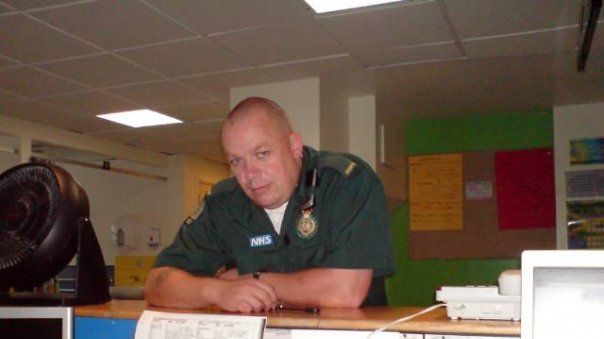
Press release -
Croydon stroke survivor urges people to act FAST
The Stroke Association today launches a new initiative to help more people affected by stroke receive emergency medical treatment. The charity is calling for people across Croydon to support the FAST Forward campaign by learning the signs of a stroke and sharing the message to help save more lives.
The FAST Test identifies the three most common symptoms of a stroke or mini-stroke and the right action to take:
FACE: Can the person smile? Has their mouth or eye drooped?
ARM weakness: Can the person raise both arms?
SPEECH problems: Can the person speak clearly and understand what you say?
TIME to call 999
Paul Schofield, 49, from Upper Norwood had a stroke in 2014 and believes the FAST Test could have saved his life. Paul, a trained paramedic, was used to recognising the FAST test at work a lot, but he never thought he would have to recognise the FAST test on himself. One morning Paul was watching TV when he suddenly lost control of all feeling in his left arm and leg. Paul took no time in calling an ambulance from his mobile phone as he knew that weakness in his arm was a sign that he could be having a stroke. When the ambulance arrived at Paul was trying to tell the paramedic that he was having a stroke but he suddenly began to lose control of his airway. As Paul notified the paramedics straight away, they rushed him straight to Kings College Hospital’s Stroke Ward. Paul spent time at Croydon University Hospital with intense physiotherapy, and now has most of his body movement back, and is hoping to return to work as a paramedic.
Michelle Dalmacio, Deputy Director for the Stroke Association in London said: “When it comes to stroke, time lost is brain lost. A stroke is caused by a blockage or a bleed in the brain, which cuts off the brain’s flow of oxygen and causes brain cells to die. So recognising the symptoms of stroke and calling 999 for an ambulance as quickly as possible is absolutely vital. Acting FAST can help reduce the devastating impact a stroke can have.
“We know that a quarter (24%) of people in London wrongly believe a stroke could never happen to them (i). Sadly this cruel condition can happen to anyone at any time. The more people who are FAST aware, the more lives we can save.”
To find out more about the FAST Forward campaign, and to view information and support available, visit www.stroke.org.uk/FastForward
Topics
Regions
A stroke is a brain attack which happens when the blood supply to the brain is cut off, caused by a clot or bleeding in the brain. There are around 152,000 strokes in the UK every year and it is the leading cause of severe adult disability. There are over 1.2 million people in the UK living with the effects of stroke.
Stroke Association is a charity. We believe in life after stroke and together we can conquer stroke. We work directly with stroke survivors and their families and carers, with health and social care professionals and with scientists and researchers. We campaign to improve stroke care and support people to make the best recovery they can. We fund research to develop new treatments and ways of preventing stroke. The Stroke Helpline (0303 303 3100) provides information and support on stroke. More information can be found at www.stroke.org.uk
(i)Opinium Research conducted an online survey of 2,002 UK adults aged 18 and over from 2 – 8 September 2014











